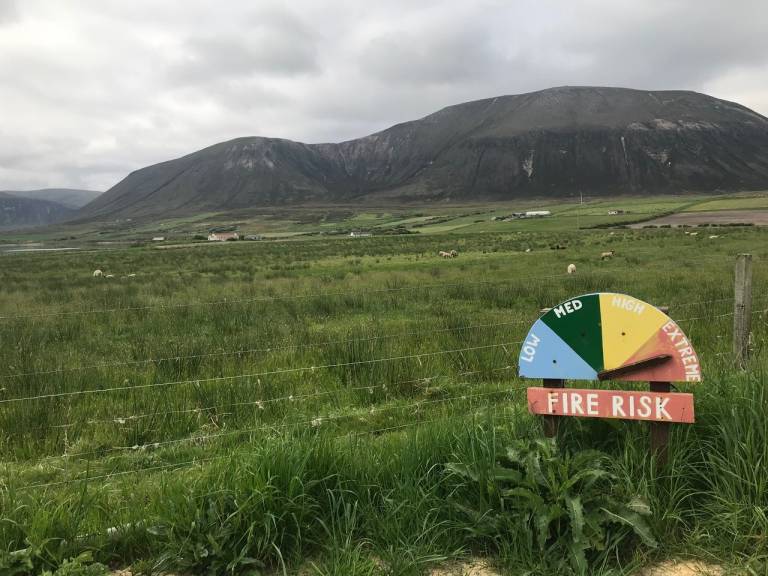Launch of the UCL Warning Research Centre
2 October 2020
UCL STS is delighted to welcome the UCL Warning Research Centre (WRC), the first Centre within the Department

STS is delighted to announce the UCL Warning Research Centre (WRC), the first centre within STS. The WRC is an interdepartmental centre focusing on all aspects in relation to warnings for all forms of risks and disasters, and draws on the excellent science communication and policy foundations of STS. Founded by Dr Carina Fearnley, the WRC brings together expertise already established at UCL with warning expertise at universities globally to work with businesses, government, non-governmental, and intergovernmental organisations to address the growing need for effective warning and alert systems via cutting-edge research, policy guidance, applications, and collaborative expertise. WRC will transform research into warnings and alert solutions by being strongly interdisciplinary and innovative.
Why are warnings important?
In 2004 over 250,000 people died across over a dozen countries during the Boxing Day tsunami, largely because there was no warning system in place. Warning Systems are an integral part of disaster risk reduction for a range of hazards including natural, quasi-natural, social, and technological hazards and their combination. They often encompass an early warning component but are also used to provide warning information and advice during an ongoing crisis.
Warning systems typically comprise of alert systems and can range in approaches that are highly technical to community based. Early Warning Systems (EWS) in particular can be defined by ‘the provision of timely and effective information, through identified institutions, that allows individuals exposed to hazard to take action to avoid or reduce their risk and prepare for effective response’ (UNISDR, 2004). For warnings to be effective they must be embedded in an extensive system of observation and communication that integrates different expert and policy cohorts, thresholds or tipping points, communication mediums and iconographies, for the provision of timely warnings to people with the aim of minimizing loss of life and reducing the social and economic impacts of disasters via active policies. Well-known examples include the Pacific Tsunami Early Warning Centre and the Asteroid Terrestrial-impact Last Alert System (ATLAS).
Why the WRC?
Warnings save countless lives every year, can be used to support day-to-day living and vulnerability reduction, and are often operated by government organisations with legal remits. However, no dedicated Warning Research Centre currently exists to pool research and experience to develop better knowledge and practices, and to share lessons across risks and disasters. The UCL WRC contributes to filling this gap by bringing together expertise from across a range of disciplines, geographies, and social and livelihood contexts to help establish more effective warnings which are more connected to and used by people.
Key objectives:
- Establish a global centre of excellence around warnings
- Provide a community for researchers and practitioners to share ideas and develop innovative solutions to complex and real problems
- Provide research expertise, teaching excellence, policy advice, and public engagement in relation to warnings
- Help place warnings on the agenda as a strategies and tools in disaster risk reduction including climate change adaptation as well as sustainable development.
Link: www.ucl.ac.uk/sts/wrc
Twitter: @UCLWRC (coming soon)
Director: Carina Fearnley
Email: c.fearnley@ucl.ac.uk
Tel: +44 (0) 207 679 4414
Deputy Director: Ilan Kelman
Email: i.kelman@ucl.ac.uk
 Close
Close

